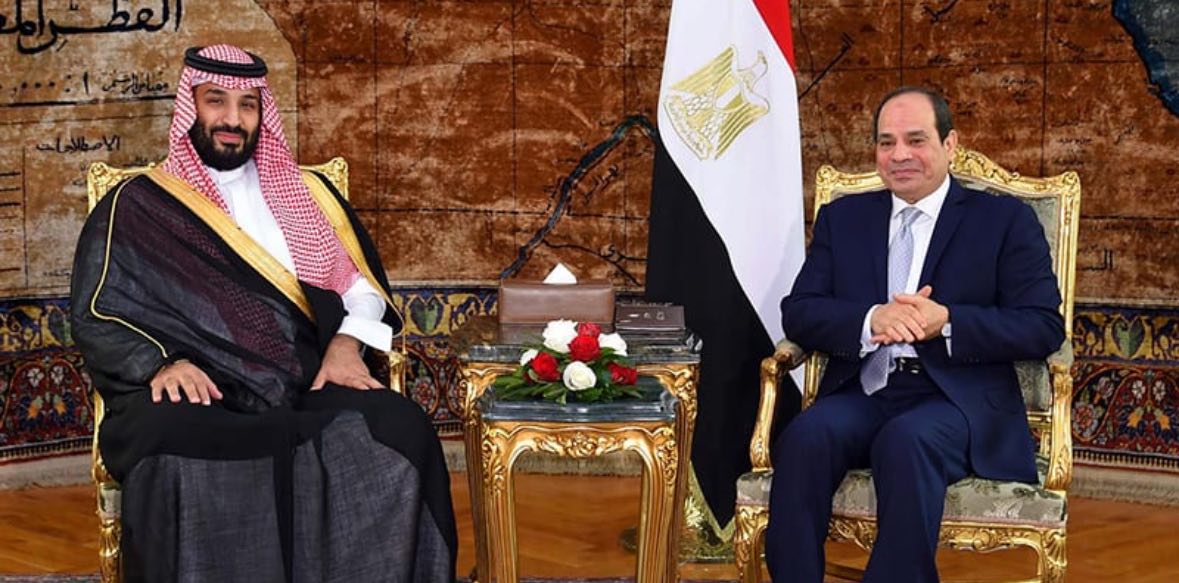The Dispute Between Egypt and Saudi Arabia Regarding Syria
The Dispute Between Egypt and Saudi Arabia Regarding Syria
Saudi Arabia was the first foreign destination for the new rulers of Syria, while Egypt believes that Syria falling under the control of Islamists closely linked to the Muslim Brotherhood is a dangerous event that could turn Damascus into a base for Brotherhood activities in the region. The security and political vacuum in Syria is not like other Arab countries. The position of this country, located between the Arabian Peninsula and Turkey on one side and between Iraq and Egypt on the other, and its border with occupied Palestine, made it a focal point for Arab officials from the first days of Bashar al-Assad’s regime collapse on December 8, 2024.
However, what draws attention in the Syrian equation is the difference in positions between Saudi Arabia and Egypt regarding Syria and its new rulers, who until recently had extremist religious backgrounds. Saudi Arabia and Egypt openly disagree on Syria, a disagreement that cannot merely be attributed to the strategic approach differences of decision-makers in the two countries. Rather, the geopolitical equation between Syria and Saudi Arabia is far more significant than the geopolitical equation between Syria and Egypt.
From Saudi Arabia’s perspective, Syria’s geopolitical position is important and has a direct impact because, firstly, Syria is geographically a natural extension of the Arabian Peninsula, and the historical roots of some Arab tribes in the Syrian Jazira trace back to Saudi Arabia. Many Syrian tribes still maintain strong ties with Saudi Arabia. Secondly, Syria is considered a strategic player for any Arab or international presence in Lebanon, and Saudi presence in Syria will have a direct impact on its presence in Lebanon. This is a rare opportunity for Saudi Arabia to rebuild its presence in Lebanon, which had dwindled in recent years. Thirdly, Syria was a base for Iran’s extensive and powerful geographical presence in the region, enabling Tehran’s rulers to threaten Saudi Arabia from the north through Syria and from the south through the Houthis in Yemen.
Given Syria’s geopolitical position, Saudi Arabia’s strategic interests not only require Syria to have security, political, and economic stability but also necessitate a strong Saudi presence in Damascus. This is to be able to alter the historical geographical equation against Iran on one hand and on the other hand to prevent Turkey’s dominance in Syria.
Among the political contradictions is that Qatar, a country with a strategic alliance with Turkey, and both supporters of the new Syrian rulers, seeks its interests in Saudi Arabia’s strong presence in the Levant. The strategic common interests in Syria between Qatar and Saudi Arabia are greater than those between Qatar and Turkey, which has a view close to that of Qatar and Saudi Arabia regarding Syria, although these views are not necessarily identical.
Turkey’s serious interest lies in keeping Syria a weak country, always in need of Turkish presence, while Qatar and Saudi Arabia believe that a strong Syria, considering the new government’s religious extensions to the Gulf countries, is in their favor, especially since the political views of these two countries align significantly with the political views of Ahmad al-Shar’a and his government.
Saudi Arabia will not allow the vacuum created in Syria to be filled without its presence, and the new Syrian rulers will not be able to build their country without Saudi assistance and cooperation. This explains why Riyadh was chosen as the first destination for the new Syrian rulers’ foreign visits and the frequent visits of Saudi officials to Damascus, including the foreign minister.
The convergence between Saudi Arabia and Syria is not only justified by geopolitical factors, but also by the approach of the two governments. Syria needs Saudi political and economic support because Riyadh is a significant power among Arab countries and can facilitate Damascus’ relations with the West. For Saudi Arabia, Syria is now strategically a blank slate, and it is in Riyadh’s interest that future Syria aligns with Saudi political approaches in the region and that its rulers do not stray far from Saudi Arabia’s political ideology.
However, Egypt’s approach towards Syria differs from Saudi Arabia’s, not only due to geopolitical differences but also due to Egypt’s political approach and its acute sensitivity to any Islamist government of any nature. The doctrine of Abdel Fattah el-Sisi’s government since 2013 is based on the belief that political Islam, due to the exclusionary political behavior of Islamists and their belief in the use of weapons, poses a direct threat to Arab countries.
El-Sisi, his government, and Egyptian media have constantly warned the Egyptian people over the past fourteen years about what happened in Syria, emphasizing that they must choose between Syria’s chaos and Egypt’s stability under el-Sisi’s rule. From this internal approach, one can understand Egypt’s fear of the new Syrian rulers’ success, as their success would shake Egypt’s official narrative, potentially becoming a threat to el-Sisi’s government.
From this perspective, Egypt shares the same view as the UAE. Egypt described the new government in Syria as the existing reality, while the UAE, during the visit of its foreign minister with his Syrian counterpart As’ad al-Shaybani, did not display the Syrian flag. This action is a clear political message that Abu Dhabi does not recognize the new Syrian government.
Egypt believes that Syria falling under the control of Islamists closely linked to the Muslim Brotherhood is a dangerous event that could turn Damascus into a base for Brotherhood activities in the region. Meanwhile, the new Syrian government leaders, in their official statements and actions, have tried to reassure regional countries in this regard.

